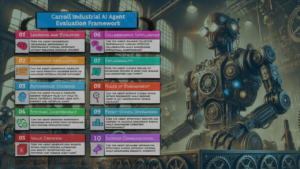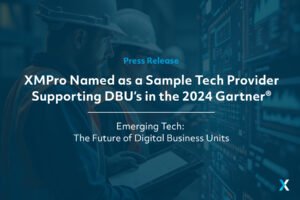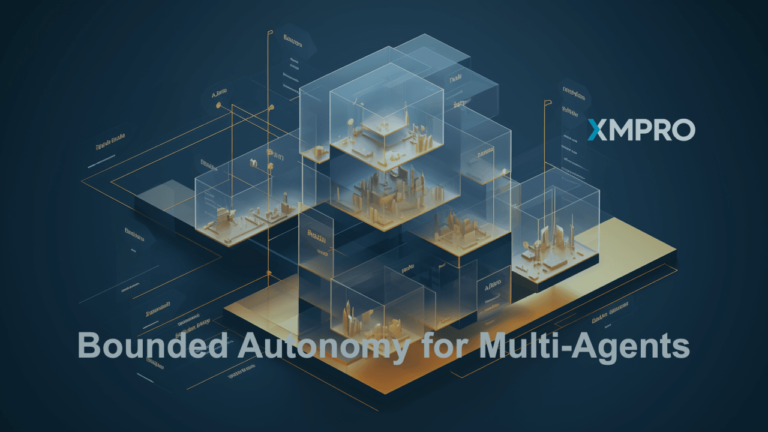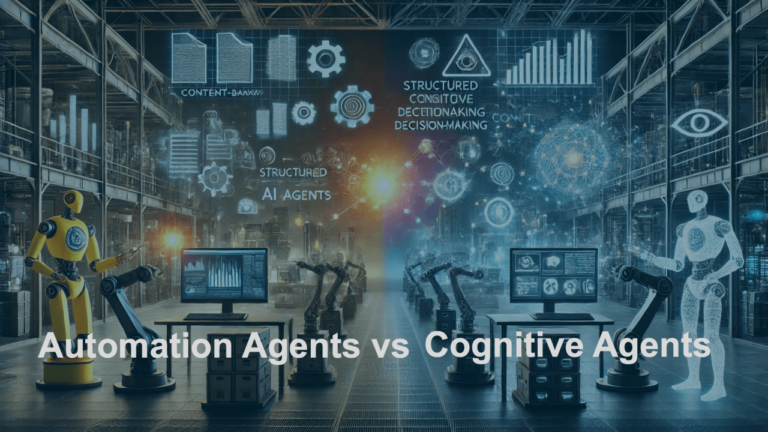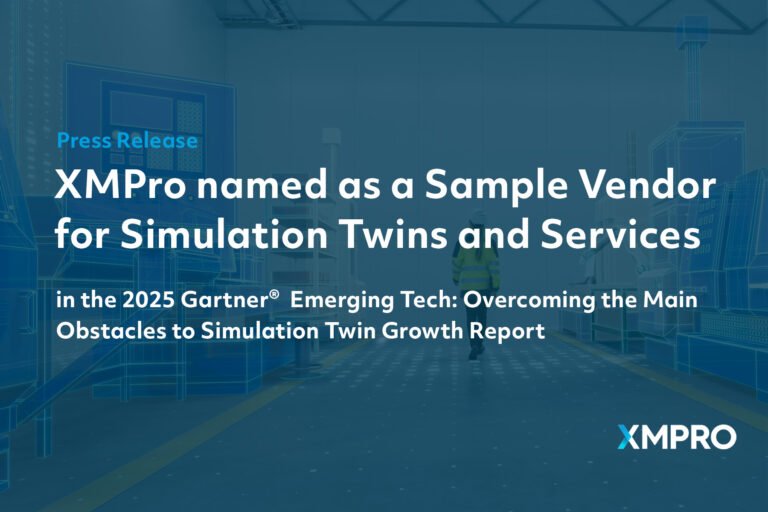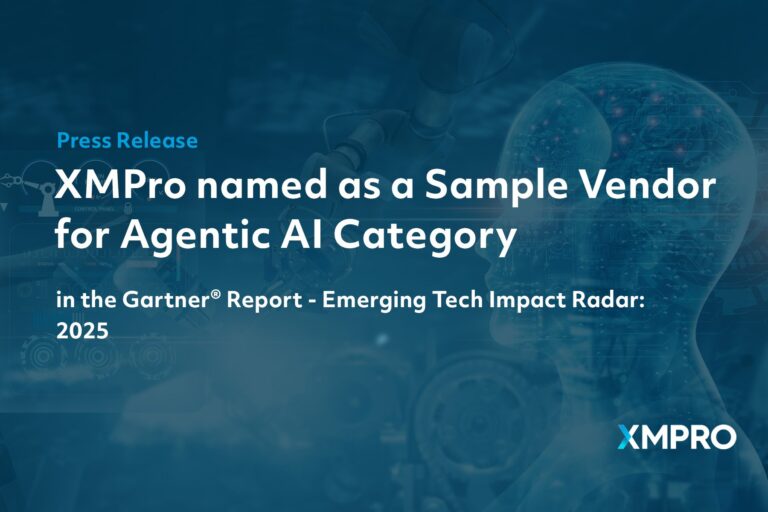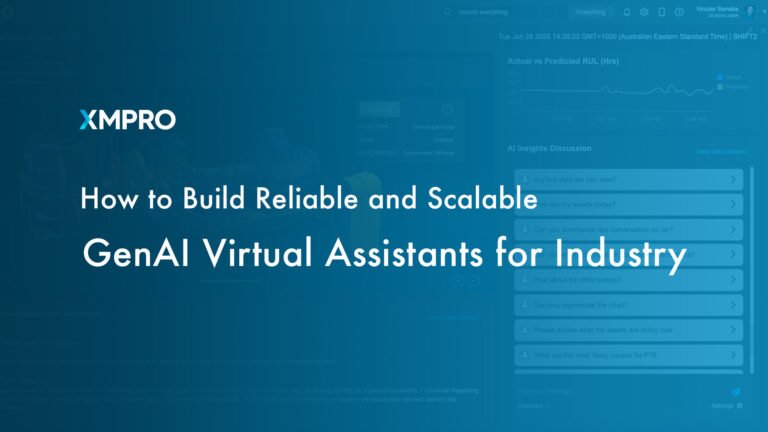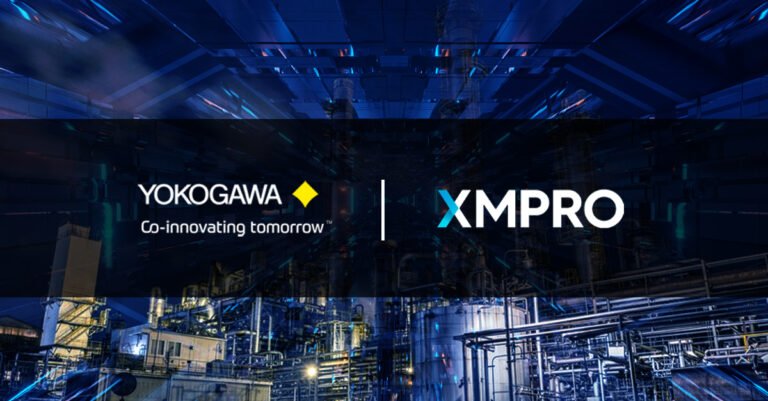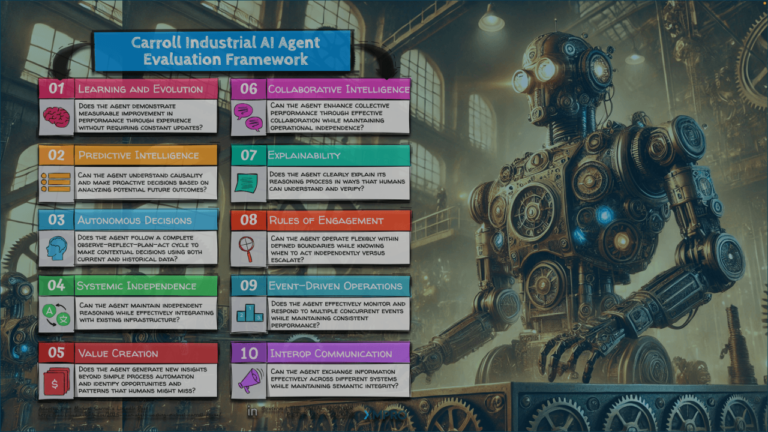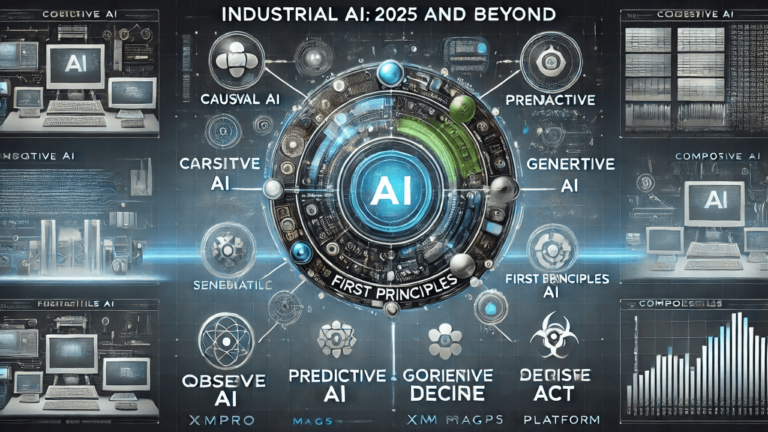
Pieter Van Schalkwyk
CEO at XMPRO
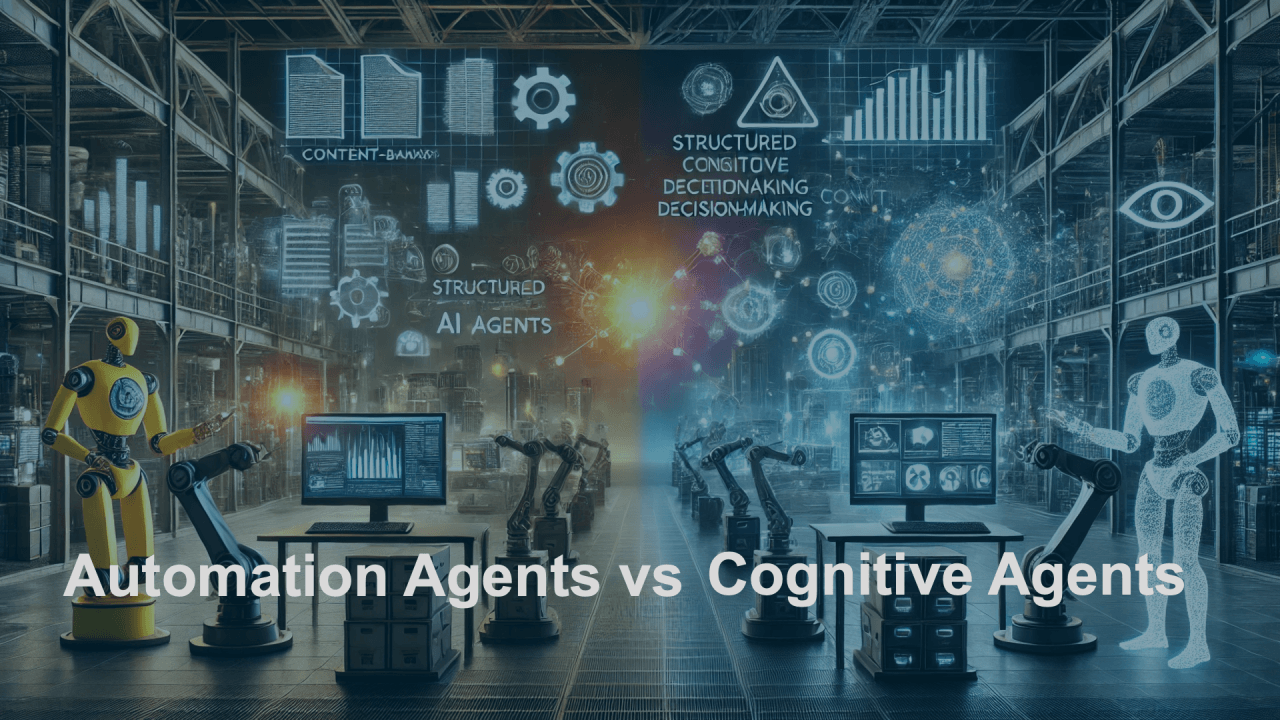
Much of today’s discussion about industrial business process automation focuses on content-based workflow agents. These systems use Large Language Models (LLMs) to process information, generate reports, and execute predefined workflows. There is also a fair amount of “agent-washing” which I discussed in a previous post “The Carroll Industrial AI Agent Framework: Evaluating True AI Agency”.
While valuable for content tasks, this focus overlooks a crucial capability: the ability to make complex operational decisions like experienced human operators do.
Understanding the Current Landscape
Content-based workflow agents receive significant attention because their capabilities are easy to understand. They excel at:
- Processing and generating documentation
- Following predefined workflows
- Answering questions based on existing content
- Executing structured tasks in sequence
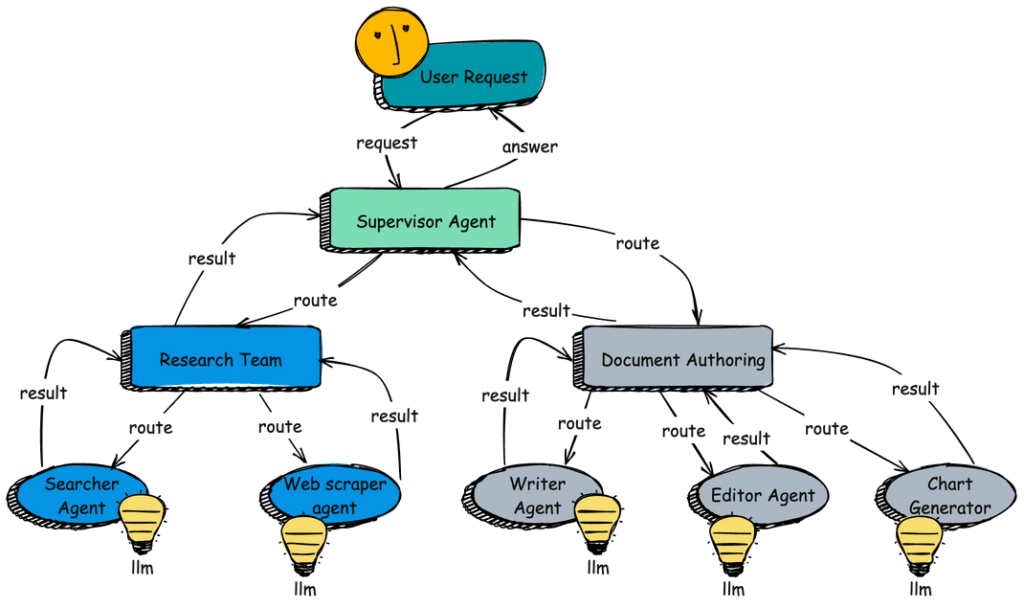
These capabilities address important needs in information management and routine processes. However, they don’t address a critical challenge facing industry today: automating the complex decision-making that experienced operators perform daily.
The Growing Skills Challenge
Industrial operations face a pressing skills crisis. Experienced operators are retiring, taking decades of decision-making expertise with them. Content-based workflow agents can document procedures and generate instructions, but they can’t replicate the actual judgment that keeps operations running smoothly.
Real industrial operations require systems that can:
- Recognize subtle patterns in equipment behavior
- Adapt decisions based on changing conditions
- Learn from operational outcomes
- Coordinate responses across multiple systems
This is where cognitive agents make a fundamental difference. Unlike content-focused agents, XMPro’s Multi-Agent Generative System approaches problems the way experienced operators do.
How Cognitive Agents Think Differently
Content-based workflow agents process information and follow rules. Cognitive agents make decisions. They use the ORPA framework (Observe, Reflect, Plan, Act) to think like human experts:
- Observe: They don’t just collect data – they notice patterns and relationships
- Reflect: They consider multiple factors and past experiences
- Plan: They develop responses based on both rules and learned insights
- Act: They implement solutions while monitoring results

While content agents can explain what happened or what should happen, cognitive agents can actually make and execute operational decisions in real-time.
Building Teams of Digital Experts
Just as your best operators work together, cognitive agents function as coordinated teams. Each agent brings specialized expertise while sharing insights and coordinating decisions. This creates a network of digital experts that can:
- Handle complex operational challenges
- Share knowledge across your operation
- Learn from collective experience
- Adapt to new situations as they arise
Preserving Human Expertise
The real power of cognitive agents emerges in how they learn from your experts. Through our APEX platform, experienced operators can:
- Teach agents their decision-making strategies
- Define important operational patterns
- Set appropriate boundaries for adaptation
- Guide how agents work together
Content agents can document this expertise. Cognitive agents can actually apply it to real operational decisions.
Combining Capabilities for Better Outcomes
XMPro’s MAGS framework uniquely handles both cognitive and content-based operations in a single platform. Our system can perform complex operational decision-making while also managing content-focused tasks. When specialized content processing is needed, MAGS can even integrate with other vendors’ agents, treating them as “contractors” for specific tasks.
This flexibility means organizations can:
- Use cognitive agents for complex operational decisions
- Handle routine content tasks within the same system
- Integrate specialized content agents when needed
- Maintain consistent governance across all operations
XMPro’s MAGS framework deploys capabilities based on the nature of each task. When operations require complex decision-making, our cognitive agents analyze patterns, adapt to changing conditions, and learn from experience. They handle the kinds of decisions that typically require years of human expertise. At the same time, when tasks involve managing documentation, creating specifications, following standard procedures, or sharing information, the system smoothly shifts to content-focused processing.
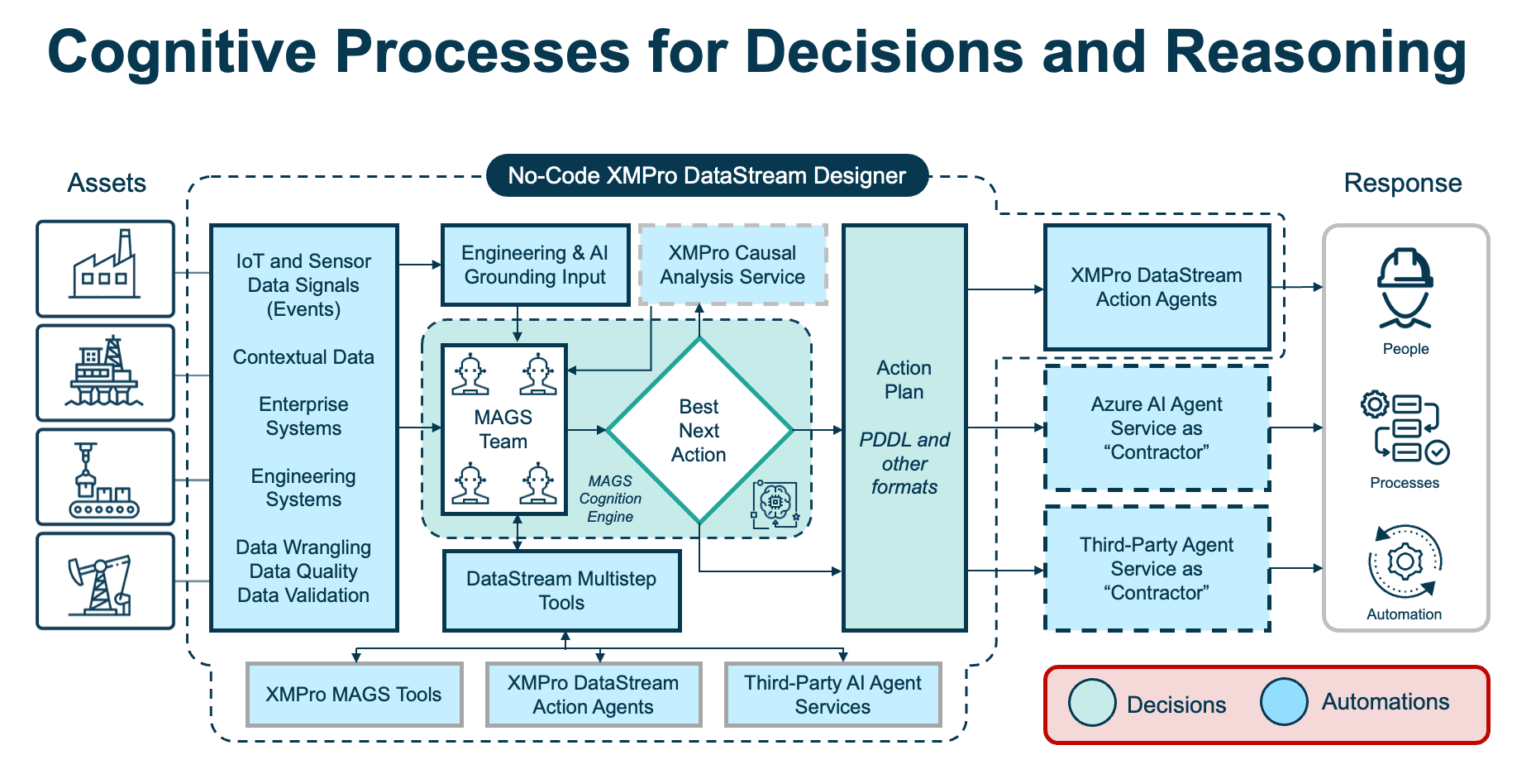
This dual capability means you don’t need separate systems for different types of work. The same platform that makes sophisticated operational decisions can also handle your routine documentation and workflow needs. XMPro’s integrated approach ensures all these tasks work together seamlessly, maintaining consistency across your operations while letting each type of agent focus on what it does best.
XMPro’s integrated approach ensures seamless coordination between all types of agents, whether they’re making operational decisions or handling content-related tasks.
Building Future-Ready Operations
As industries face growing complexity and changing workforce dynamics, they need both types of agents. Content agents help manage information and processes. Cognitive agents preserve and apply operational expertise.
XMPro’s cognitive agents help companies:
- Preserve crucial operational knowledge
- Maintain consistent decision-making
- Build stronger capabilities over time
- Adapt to changing conditions
- Train new operators more effectively
This comprehensive approach helps organizations maintain operational excellence even as their workforce changes.
Looking Forward
The future of industrial operations requires both effective content curation and sophisticated decision-making. Understanding the distinct capabilities of content-based and cognitive agents helps organizations build more complete automation strategies.
As companies recognize the importance of automating complex operational decisions, cognitive agents will play an increasingly crucial role. They complement existing content-based systems while adding the critical ability to make and execute expert-level operational decisions.
About XMPro: We help industrial companies automate complex operational decisions. Our cognitive agents learn from your experts and keep improving, ensuring consistent operations even as your workforce changes.
Our GitHub Repo has more technical information if you are interested. You can also contact myself or Gavin Green for more information.
Read more on MAGS at The Digital Engineer
About the Author: Pieter van Schalkwyk is the CEO of XMPro, which focuses on helping organizations bridge the gap between industrial operations and enterprise systems through practical AI solutions. With over thirty years of experience in industrial automation and digital transformation, Pieter leads XMPro’s mission to make industrial operations more intelligent, efficient, and responsive to business needs.







